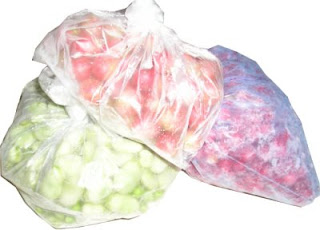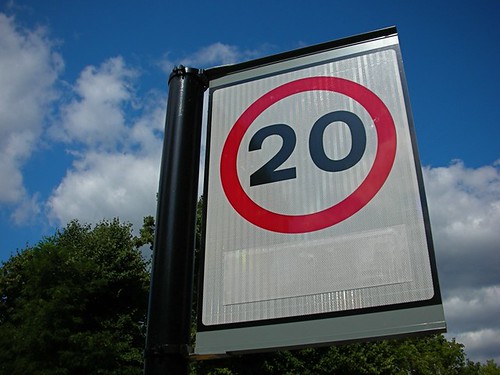
Win-win-win! This is what Northfield Ecocentre is all about! These are all things I’ve been trying out. They may not all suit everyone, but I’m hoping at least one idea will grab you:
1) Make full use of your local library – you might as well as you’re paying for it anyway. Not just good for borrowing books but also for surfing the Internet, reading the papers, loaning CDs, maps, etc.
2) Leave the car in the garage and get on your bike – now’s the perfect time of year to repair that puncture, oil the chain and enjoy the summer weather. If you're daunted at the thought of competing with the traffic, sign up for a
Bikeability course (run by the Council) to help you cycle safely and confidently.
3) Make an effort to get to know your neighbours better – they may be a big help when you need to borrow a cup of sugar…or a lawnmower. Knock on the door and say hello or, better still, invite them round for an evening drink out on the patio or organize a party.
4) Try growing your own fruit and veg. Get hold of a few seeds and a little organic compost and pop them in old yoghurt pots or margarine tubs. You may be pleasantly surprised how easy it is to get results! You are cordially invited to the Ecocentre to see our very own warts-and-all urban garden.
5) Join
Birmingham Freecycle (or your local equivalent) and get stuff for free instead of buying it new. You’ll be amazed at what you can find on this website!
6) Unplug the clothes dryer (which uses around 2 kilowatts of electricity per hour = 30 pence) and use your washing line - a great excuse to get outside and hear the birds singing.
7) Get rid of the car and
hire one for when you really need it: that half-term camping trip to Wales or visiting old friends in deepest darkest Devon.
8) Set up a weekly box delivery of organic fruit n veg – good for the environment, good for local farmers, less shopping for you, and (surprise, surprise!) cheaper than supermarkets. I can personally recommend the delicious produce of
Boxfresh Organics based in Herefordshire & Shropshire.
9) Recoup your TV license fee by ditching the telly and listening to the radio instead. Watch films on DVD, and if there’s something you or the kids really want to watch, arrange to pop round to a friend’s and enjoy their company.
10) Get composting! It’s fun, slashes the amount of rubbish you leave out for the binmen, and provides great food for the hungry new plants sitting on your windowsill. There are a few important basics but
Recycle Now will tell you everything you need to know.
11) Get those endorphins coursing through your veins by taking regular exercise! Make sure it’s something you enjoy and won’t just give up after a few weeks.
Yoga is great for relaxing and warming up first thing on a cold morning. Hiking gets you out into the great outdoors. I’ve already mentioned cycling. How about swimming, gardening…salsa?
Hey, that was actually eleven good ideas - but who's counting anyway? Looking back through the list, I could pretty much have summarized the whole lot in three short maxims:
1) Work with nature rather than against it (see Duncan’s last post about bees)
2) Be prepared to share, exchange & socialize with others
3) Enjoy some healthy physical exercise




































